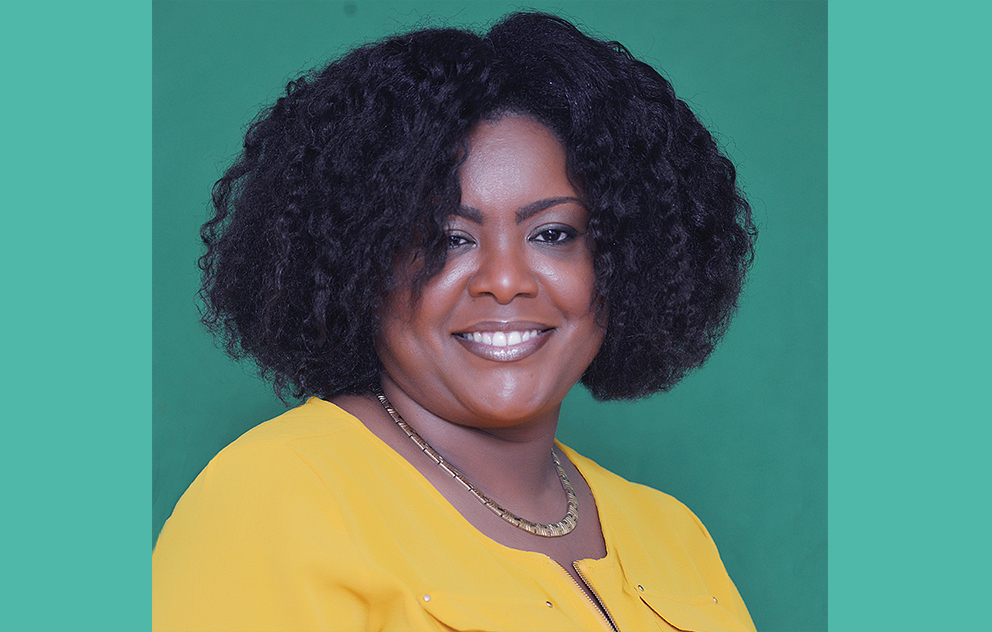By Nephtalie Hyacinthe
Immigration is a very important topic as many fear deportation or separation. One very important member of the Haitian community revealed her immigration status. Farah Larrieux, a 2014 recipient of the “Beacon of Hope of Achievement Award” from the Haitian Consulate General in Miami claimed that she was granted Temporary Protected Status (TPS) in 2010.
Farah Larrieux is a TV personality, social entrepreneur, and community advocate. She started her career in communication in Haiti at the young age of 17. She found herself being immensely involved with the Haitian Music Industry in South Florida once she moved to the United States.
Farah found it difficult to understand the role that the Haitian diaspora plays in humiliating their own who have TPS. To some, it is taboo to discuss immigration within our circle.
“We, as a community need to be more involved and empower people,” said Ms. Larrieux. “I took a stand without fear to speak on the subject regardless of my immigration status.”
Farah Larrieux did it because she was tired of seeing Haitians bashing their own people. When Trump spoke on the subject of TPS recipients, she thought Haitians would be compassionate towards their own but it was the opposite. Many were calling TPS recipients lazy. “Even Former Haitian President Michel Martelly requested that TPS recipients to be sent back to Haiti to rebuild. “Rebuild how?” said Ms. Larrieux.
She sees the discrimination that exists in the community because each group thinks they are better than the other. The ones with citizenship think they’re better than the ones with residency and the ones with residency think that they’re better than the ones with TPS. She realized that the ones who were born here of Haitian parents think that they are better than the rest. She has witnessed and heard that when Haitians just moved to the U.S. and they’re staying at someone’s house, their own family abused them because they knew that they had no papers. If you have an accent, your own Haitian people will laugh at you. Meanwhile, she has experienced how an American will be very patient and if they correct they will do it with love and compassion.
“Coming out boldly about my immigration status was a statement. I wanted to say stop the discrimination among ourselves,” said Ms. Larrieux. Most people wouldn’t expect someone like Farah Larrieux to be a TPS recipient due to her accomplishments. In fact, many were surprised that she was not an American citizen. What surprised her about the community is the false rumors that she was doing this for visibility. “I have had visibility since I was very young. I thought it was just ignorance on their part to think that I would lie for something like that,” continued Ms. Larrieux.
Farah Larrieux never felt diminished because of her immigration status but she felt limited. Limited into continuing her education and pursuing another degree. Limited to use her full potential. Still, she will not allow her immigration status to limit her voice even if it means being sent back to Haiti.
Farah is hopeful but never once afraid of coming public with this nor even considered being sent back to Haiti because she is a woman of faith. “When I step my foot on the fire, I know without a doubt that I am winning,” she said. She is fearful more for others than herself. She knows that she will be able to get back on her feet but others might not be able to, therefore, she has more of a reason to fight.
She would love the support of the radio personalities whom she feels not only take a backseat in this movement but also report nonfactual information. They speak from inaccurate opinions.
“Radio personalities will share information just so they can have everyone panicked,” said Ms. Larrieux. She once heard one of them state that TPS recipients
will never win the fight, that they will never be granted residency. They were encouraging and organizing groups to drive TPS recipients to the Canadian border, which resulted in many deportations.
“Haitians are afraid to talk about their immigration status not necessarily because they’re afraid of deportation but because they’re afraid of what people might say,” stated Ms. Larrieux. Discrimination and abuse exist in our community. She mentioned that some immigration attorneys don’t have integrity; they are after the money.
The problem is very complex. We have to come together to discuss how it can work. Farah Larrieux has collaborated with FANM and Sant La and many others because they are on the front line of immigration. She wants to build confidence in others who face the same situation as she.
On June 4th, 2019 the House of Representatives passed The Dream and Promise Act H.R.6 which will impact 2 million TPS recipients, including 800,000 DACA recipients. This bill offers a pathway to citizenship for these permanent residents. This was due to the enduring fight of many organizations.
There are 12 countries involved in TPS but Haiti carries a lot of weight. A lot of people were afraid because they thought if they filed, then authorities would know their address.
The TPS will end July 22nd, 2019. After the decision to end TPS, many organizations sued the Trump Administration. It was based on racial discrimination. This time there is no fee to renew. The work permit is automatically extended. Those who didn’t do it in 2017, but who were already in the system, can renew it now. TPS recipients can rest assured that ICE raids are only going after illegal immigrants who already had their day in court and refused to show up for that date.
Farah Larrieux wants everyone to know that there are some TPS recipients who are well-educated but even the ones who are not shouldn’t be treated differently.


